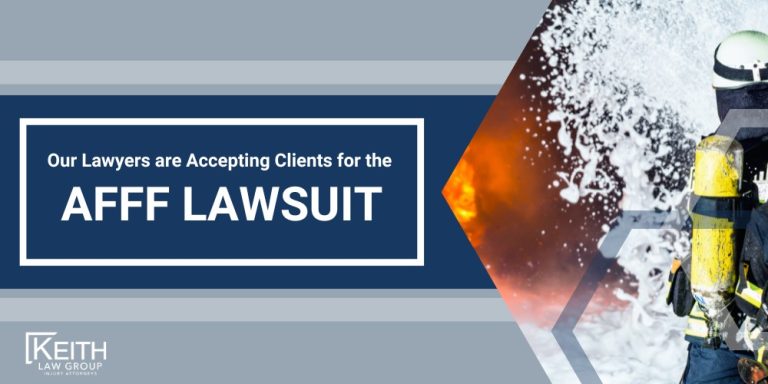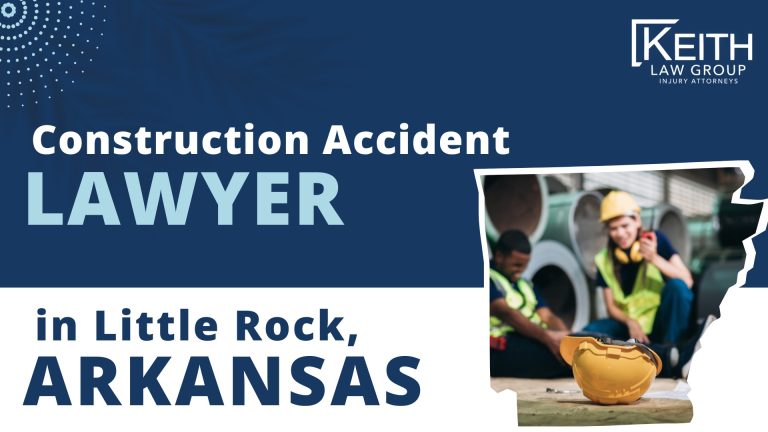- Last Updated: November 24th, 2025

Attorney Sean T. Keith has been a personal injury lawyer for 30+ years, a nationally recognized Top 100 Trial Lawyer, and top car accident lawyer & motor vehicle accident lawyer in Arkansas.
Legally Reviewed
This article has been written and reviewed for legal accuracy and clarity by the team of writers and attorneys at Keith Law Group and is as accurate as possible. This content should not be taken as legal advice from an attorney. If you would like to learn more about our owner and experienced injury lawyer, Sean T. Keith, you can do so here.
Fact-Checked
Keith Law Group does everything possible to make sure the information in this article is up to date and accurate. If you need specific legal advice about your case, contact us. This article should not be taken as advice from an attorney.
Sean Keith's Accollades & Practice Areas He Specializes In
- Over $20 Million recovered in Medical Device Injury Lawsuits.
- Over $13 Million recovered in Car Accident Lawsuits and other Motor Vehicle Accident Lawsuits.
- Over $100 Million recovered in total on behalf of clients.
- Sean represents clients in cases involving personal injuries, car accidents, motorcycle accidents, truck accidents, wrongful death, slip and falls, nursing home abuse cases, nursing home elopement cases, and more.
AFFF Lawsuit: Exposure to Firefighting Foam Linked to Cancer
On this page, we’ll discuss the ongoing AFFF Lawsuit, the litigation established for pending AFFF lawsuits, the basis for the AFFF cancer lawsuits, who is eligible to file an AFFF firefighter foam lawsuit, and much more.
Do You Qualify to File an AFFF Lawsuit?
Aqueous Film-Forming Foam (AFFF) is a firefighting foam commonly used to suppress flammable liquid fires, particularly in military and airport settings.
However, AFFF contains toxic chemicals known as per- and polyfluoroalkyl substances (PFAS), which have been linked to serious health conditions, including various forms of cancer, liver damage, and immune system disorders.
Due to the severe risks associated with PFAS exposure, many individuals exposed to AFFF are now pursuing legal action against the manufacturers of these products.
AFFF lawsuits allege that companies knowingly produced and distributed these harmful products without adequate warnings about their dangers.
The AFFF Firefighting Foam lawsuit aims to secure compensation for medical expenses, lost wages, and other damages suffered by affected individuals.
Our Firefighting Foam Lawyers are actively accepting new clients for the AFFF Litigation.
If you or a loved one has been exposed to AFFF and experienced health issues, Keith Law Group is here to help.
Contact us today for a free consultation or use our chatbot to find out instantly if you qualify to file an AFFF lawsuit.
Table of Contents

What is AFFF Firefighting Foam and Why is it Dangerous?
Aqueous Film-Forming Foam (AFFF) is a specialized firefighting foam used extensively by military personnel, firefighters, and in industrial settings to combat flammable liquid fires, such as those involving oil or jet fuel.
Developed in the 1960s, AFFF gained popularity for its ability to quickly suppress large fires by creating a film that cuts off the fire’s oxygen supply, preventing re-ignition.
However, the same chemical properties that make AFFF effective also make it hazardous to human health and the environment.
AFFF contains per- and polyfluoroalkyl substances (PFAS), a group of synthetic chemicals that are highly resistant to heat, water, and oil, making them difficult to break down in the environment.
People are exposed to AFFF primarily through occupational use, such as firefighters who regularly come into contact with the foam during training and emergency response, and military personnel stationed at bases where AFFF has been widely used.
Additionally, communities near military bases, airports, and industrial sites can be exposed through contaminated water sources, as PFAS from AFFF can seep into groundwater and persist for decades.
The dangers of AFFF are not immediately apparent, as PFAS accumulate in the human body over time, leading to long-term health risks.
The persistence of PFAS in the environment, combined with their ability to bioaccumulate, means that even minimal exposure can result in significant health consequences over time.
If you were exposed to AFFF and subsequently developed cancer or other serious health problems, you may be eligible to file an AFFF lawsuit.
Contact Keith Law Group today for a free consultation and to get in touch with our experienced firefighting foam lawyers.
You can also use the chatbot on this page to find out if you qualify to join the AFFF Firefighting Foam lawsuit today.
Who Has Been Exposed to AFFF Firefighting Foam?
Exposure to AFFF firefighting foam has impacted a wide range of individuals, especially those in occupations that require frequent use or handling of AFFF foam.
The risks associated with AFFF foam exposure are not limited to active firefighting but extend to various other roles and environments where AFFF has been manufactured, stored, or disposed of.
Over the years, exposure has been linked to serious health risks, making it crucial to identify the groups most at risk.
Groups of people who have suffered known exposure to AFFF include:
- Military firefighters: Regularly used AFFF during training and emergency responses, leading to prolonged exposure.
- Municipal firefighters: Utilized AFFF in civilian firefighting efforts, particularly in industrial and airport settings.
- Military personnel: Beyond firefighters, other service members may have been exposed to AFFF during base operations or while handling contaminated equipment.
- Army: Service members stationed at bases where AFFF was used extensively.
- Navy: Personnel on ships and at naval facilities where AFFF was a standard firefighting tool.
- Air Force: Regularly involved in the use of AFFF for aircraft fire suppression.
- Other branches: Marines, Coast Guard, and other military branches that utilized AFFF in various capacities.
- Workers responsible for the manufacture or disposal of AFFF: Individuals involved in producing, packaging, or disposing of AFFF have faced occupational exposure.
These groups are at a heightened risk for health complications linked to AFFF exposure, making it essential for affected individuals to seek medical advice and explore their legal options.
AFFF Exposure Linked to Cancer and Other Serious Health Problems
Aqueous Film-Forming Foam (AFFF) has been widely used for decades, particularly by military and firefighting organizations, due to its effectiveness in suppressing flammable liquid fires.
Mounting evidence from scientific studies and health organizations has linked exposure to AFFF to an increased risk of cancer and other severe health problems.
The primary concern lies in the PFAS chemicals found in AFFF, which are known to persist in the environment and accumulate in the human body over time.
These “forever chemicals” do not break down easily, leading to long-term exposure risks that have been documented in numerous studies.
Research has shown that PFAS can disrupt biological processes and has been associated with various toxic effects on human health.
As a result, there has been a growing call for regulatory action and increased litigation to hold manufacturers accountable for the harm caused by these chemicals.
Types of Cancer Linked to AFFF Exposure
Exposure to Aqueous Film-Forming Foam (AFFF) has been linked to several types of cancer, as supported by multiple scientific studies and health reports.
PFAS have been shown to increase the risk of developing certain cancers due to their persistence in the body and their ability to disrupt normal cellular functions.
Below is a list of specific cancers that have been associated with AFFF exposure:
- Kidney Cancer
- Testicular Cancer
- Prostate Cancer
- Bladder Cancer
- Pancreatic Cancer
- Thyroid Cancer
Other Health Effects of Exposure to AFFF
In addition to its links to cancer, exposure to AFFF has been associated with a range of other serious health effects.
Toxic PFAS chemicals in AFFF have been shown to interfere with various bodily systems, leading to chronic health problems.
Forever chemicals can accumulate in the human body over time, increasing the risk of adverse effects even at low exposure levels.
Studies have documented several non-cancerous conditions linked to AFFF exposure, highlighting the broad impact these substances can have on health.
The following is a list of other significant health effects associated with AFFF exposure:
- Thyroid Disease and Dysfunction
- Ulcerative Colitis
- Immune System Suppression
- Liver Damage
- Reproductive and Developmental Issues
AFFF Lawsuit Overview
The AFFF Lawsuit involves claims that manufacturers of Aqueous Film-Forming Foam, including major companies like 3M, DuPont, Tyco Fire Products, and Chemours, knowingly produced and distributed firefighting foams containing hazardous PFAS chemicals without adequately warning users of the associated health risks.
Plaintiffs allege that exposure to these dangerous chemicals has led to serious health issues, including various types of cancer.
The lawsuits also claim that these companies were aware of the dangers posed by PFAS for decades but chose to prioritize profits over public safety.
Firefighting foam attorneys are currently accepting AFFF firefighting foam cases from individuals across the country.
Is There an AFFF Class Action Lawsuit?
No, there is not an AFFF Firefighting Foam Class Action Lawsuit.
Lawsuits concerning the health effects and dangers of AFFF firefighting foams are consolidated into multidistrict litigation (MDL), a separate and distinct legal process.
MDL No. 2873, which is being overseen by Judge Richard M. Gergel in the U.S. District Court for the District of South Carolina combines thousands of individual lawsuits where plaintiffs claim they were harmed by exposure to PFAS chemicals in AFFF, leading to various types of cancer and other serious health conditions.
Unlike a traditional class action lawsuit where one case represents all plaintiffs, the AFFF Firefighting Foam MDL allows each plaintiff to maintain their own lawsuit while consolidating pretrial processes to improve efficiency.
This approach facilitates a streamlined discovery process and paves the way for potential settlements or bellwether trials, which can set precedents for other cases in the MDL.
The MDL continues to grow, with more cases being added regularly, and the first bellwether trials focused on personal injury and cancer claims are expected to take place in 2024.
Other bellwether trials have focused on municipal water contamination cases.
The outcome of these trials could significantly impact the direction of the MDL and potential settlements for the plaintiffs involved.
If you or a loved one were exposed to AFFF and developed cancer or other related health problems, you may be eligible to join the AFFF multidistrict litigation.
Contact our Firefighting Foam Cancer Lawyers today for a free consultation and to learn more about the AFFF MDL.
You can also use the chatbot on this page to find out if you qualify to take legal action for your exposure to toxic firefighting foam.
Who Qualifies for the AFFF Cancer Lawsuit?
Personal injury lawsuits are being filed against firefighting foam manufacturers for failing to warn about the serious health risks linked to their products.
AFFF personal injury cases seek compensation for medical expenses, pain and suffering, and other damages resulting from exposure to AFFF and subsequent health issues.
Lawyers representing plaintiffs in the firefighting foam cancer lawsuits understand the gravity of these issues and how to effectively seek compensation for those who have suffered.
The AFFF multi-district litigation provides a pathway for individuals who have suffered from a number of diseases linked to PFAS chemicals.
If you’ve developed cancer or other serious health issues after being exposed to AFFF, you may be eligible to file an AFFF Lawsuit.
Contact our AFFF Lawyers today for a free case review, or use the chatbot on this page to find out if you’re eligible to file an AFFF Firefighting Foam Lawsuit instantly.
Lawyers representing individuals in the AFFF Lawsuits can help individuals through the legal process in the aim of securing adequate compensation.
This includes the preliminary steps of gathering evidence and assessing damages.
Evidence in the AFFF Lawsuit
Gathering strong evidence is crucial for individuals pursuing an AFFF lawsuit.
Working with a lawyer can help you compile the necessary documentation and records to support your claim.
Below is a list of key types of evidence that can strengthen your case:
- Medical Records: Detailed documentation of diagnoses, treatments, and health conditions linked to AFFF exposure.
- Employment Records: Proof of your work history in roles or environments where AFFF was used, including military service records or firefighter employment details.
- Exposure Documentation: Records showing direct exposure to AFFF, such as logs, incident reports, or training records that detail the use of AFFF.
- Witness Statements: Testimonies from colleagues, supervisors, or other witnesses who can corroborate your exposure to AFFF.
- Expert Testimony: Opinions from medical and environmental experts linking your health issues to AFFF exposure.
- Environmental Reports: Documents showing contamination in the areas where you lived or worked, such as water quality reports or environmental assessments.
- Product Information: Manufacturer information, safety data sheets (SDS), and other documents that detail the chemical composition and risks of the AFFF products used in your workplace.
These pieces of evidence are vital in building a compelling case and securing the compensation you deserve.
Damages in the AFFF Lawsuit
In an AFFF lawsuit, plaintiffs seek compensation for various types of damages resulting from exposure to toxic firefighting foam.
These damages aim to cover the broad spectrum of physical, emotional, and financial harm that affected individuals have endured.
Below is a list of potential damages that may be pursued in an AFFF lawsuit:
- Medical Expenses: Costs related to diagnosis, treatment, surgeries, and ongoing medical care for conditions caused by AFFF exposure.
- Lost Wages: Compensation for income lost due to inability to work, either temporarily or permanently, because of health issues linked to AFFF.
- Pain and Suffering: Monetary compensation for the physical pain and emotional distress caused by the health impacts of AFFF exposure.
- Loss of Earning Capacity: Damages for the diminished ability to earn income in the future due to lasting health problems.
- Loss of Consortium: Compensation for the impact of AFFF-related injuries on relationships with spouses or family members.
- Funeral and Burial Costs: In cases of wrongful death, recovery of costs associated with the funeral and burial of a loved one.
What is the Average AFFF Lawsuit Settlement Amount?
The average settlement amount for AFFF lawsuits varies widely based on several factors, including the severity of the health conditions involved and the extent of exposure to AFFF foam.
Current projections suggest that top-tier settlements for those with the most serious conditions, such as long-term occupational exposure and cancers like kidney or pancreatic cancer, could range from $200,000 to $500,000.
Mid-tier settlements, which might involve less severe health conditions or shorter exposure periods, are estimated to fall between $150,000 and $300,000.
Lower-tier settlements, which would typically apply to cases with less severe health impacts, may range from $20,000 to $75,000.
It’s important to note that these figures are only estimates based on previous similar cases and the current understanding of the AFFF litigation.
These Firefighting Foam Lawsuit settlement projections are by no means a guarantee of the exact settlement amount any individual might receive.
The final settlement amounts will likely depend on the outcomes of ongoing bellwether trials and the specifics of each case.
For more information on AFFF lawsuits and what you might be able to expect for a firefighting foam settlement, reach out to our AFFF lawyers today.
Keith Law Group’s AFFF lawyers provide free, no-obligation consultations to those who believe they may qualify to file an AFFF lawsuit.
Contact us today, or use the chatbot on this page to find out if you qualify for the AFFF foam lawsuit instantly.
Keith Law Group: Accepting Clients for the Firefighting Foam Cancer Lawsuit
Keith Law Group is actively accepting clients for the ongoing AFFF firefighting foam cancer lawsuit.
If you or a loved one has been exposed to AFFF and developed cancer or other serious health conditions, you may be entitled to significant compensation.
Our experienced legal team is committed to holding manufacturers accountable for the harm caused by their dangerous products.
We understand the complexities of these cases and are dedicated to securing the best possible outcomes for our clients.
Don’t wait — contact Keith Law Group today for a free consultation to discuss your legal options and determine if you qualify to join the AFFF lawsuit.
Reach out now to take the first step toward justice and compensation.
Frequently Asked Questions
-
The AFFF lawsuit involves claims against manufacturers of Aqueous Film-Forming Foam (AFFF), a firefighting foam that contains harmful chemicals known as PFAS (per- and polyfluoroalkyl substances).
Plaintiffs in these lawsuits allege that exposure to AFFF, particularly through occupational use by firefighters and military personnel, has led to serious health issues, including various cancers.
The lawsuits contend that the manufacturers were aware of the risks associated with PFAS but failed to warn users, leading to widespread harm.
The litigation is currently consolidated into a multidistrict litigation (MDL) to streamline the process.
The AFFF multidistrict litigation contains both personal injury lawsuits and municipal water contamination lawsuits filed against firefighting foam manufacturers.
-
Individuals who have been exposed to AFFF and subsequently developed health problems, particularly certain types of cancer, may be eligible to file an AFFF lawsuit.
Eligibility often includes those who have had prolonged occupational exposure, such as firefighters, military personnel, and workers at industrial sites where AFFF was regularly used.
To determine eligibility, it is crucial to consult with a lawyer who specializes in environmental and toxic tort litigation.
The AFFF firefighting foam lawyers at Keith Law Group can help determine if you qualify to file an AFFF lawsuit.
Reach out to us today for a free consultation.
-
Exposure to AFFF is primarily linked to several types of cancer, including kidney cancer, testicular cancer, pancreatic cancer, prostate cancer, and non-Hodgkin’s lymphoma.
Other health conditions associated with PFAS exposure from AFFF include thyroid disease, ulcerative colitis, liver damage, and immune system disorders.
These health issues are due to the toxic nature of PFAS, which are persistent in the environment and bioaccumulate in the human body over time, leading to long-term health risks.
-
The timeframe for filing an AFFF lawsuit is governed by the statute of limitations, which varies by state.
Typically, this period ranges from one to six years from the date you were diagnosed with a health condition linked to AFFF exposure or from when you became aware that your condition could be related to such exposure.
It is crucial to act promptly, as missing the deadline could result in losing your right to seek compensation.
Consulting with a lawyer as soon as possible can help ensure that your case is filed within the appropriate timeframe.
-
Compensation in an AFFF lawsuit can cover a range of damages, including medical expenses, lost wages, pain and suffering, loss of earning capacity, and, in some cases, punitive damages.
The amount of compensation varies depending on the severity of the health condition, the extent of exposure, and the strength of the evidence presented.
While there are estimates that top-tier settlements could range from $200,000 to $500,000 or more, these figures are not guaranteed and will depend on the specifics of each case and the outcomes of ongoing bellwether trials in the AFFF MDL.
If you believe you may be eligible to file an AFFF lawsuit, contact Keith Law Group today for a free consultation to discuss your case and explore your legal options.
Practice Areas
You pay
Nothing
unless we win
Do You Have A Case?
Related Articles

Choose Us For Your Personal Injury Case
- Available 24/7
- No Upfront Fees
- Free Case Evaluation
- No Fees Unless We Win!











